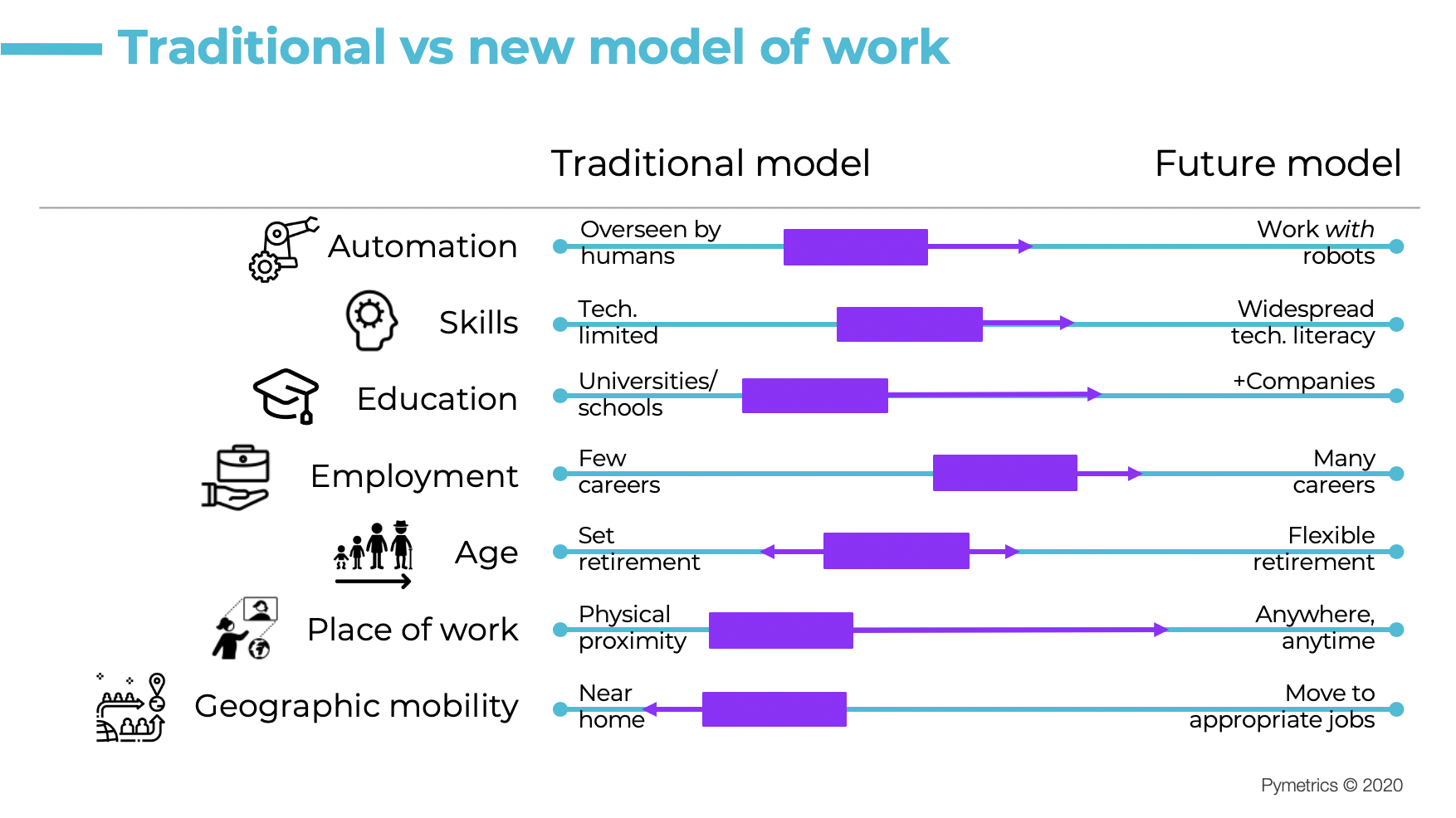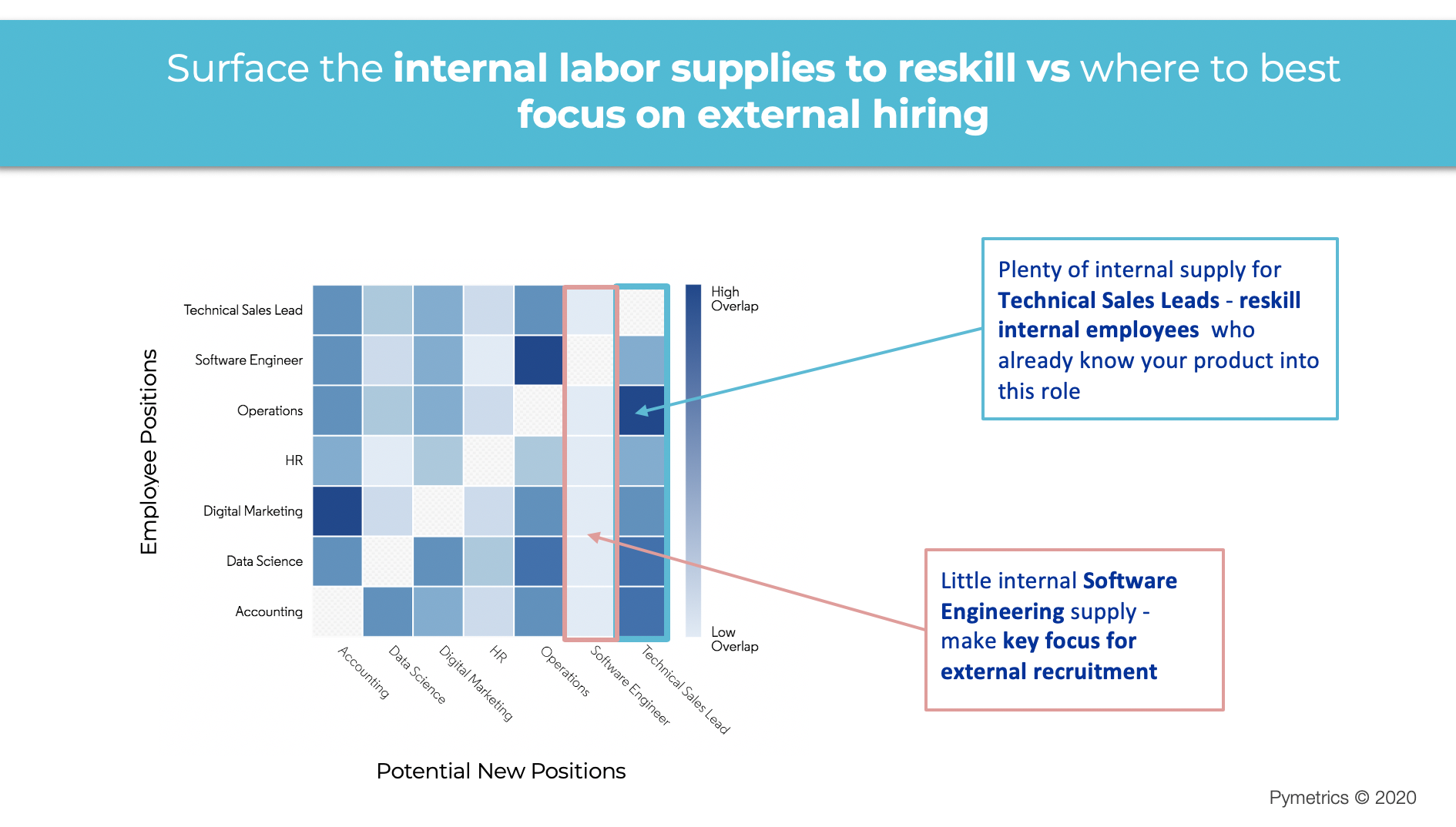How pymetrics is rethinking human potential with better talent data

Change is inevitable. For a while now, we have been moving towards a new model of work where everything – from how we work to where we work – is getting redesigned. The pandemic, whilst anomalous, has exposed how ill-prepared many organizations are to tackle the next phase of transformation, and how urgently they need to build up the digital capability and agility of their workforce.
As Deloitte’s survey shows, most organizations do not have the insights they need to get started. 59 percent of the respondents said they need additional information to understand the readiness of their workforce to meet new demands, and 38 percent said that identifying workforce development needs and priorities is their greatest barrier to workforce development.
HR tech firm pymetrics seeks to provide a new standard of talent data – one that is objective, future-focused, and dynamic.
pymetrics started its journey in 2013 with the mission to help organizations break away from traditional hiring practices, which were not only ineffective and often biased, but also delivered notoriously poor in candidate experiences.
“The whole idea behind pymetrics is that instead of a resume, you are looking at people’s cognitive, social, and emotional aptitudes. It’s a much more holistic, hopeful view of someone’s potential than, oh, this is what you’ve done, and this is all you can do,” said Frida Polli, CEO and Co-Founder, pymetrics.
In the last year, the team further expanded its capabilities around internal mobility and workforce reskilling as they realized that these were areas HR and business leaders were struggling the most with. Technological innovation, geopolitical disruption, economic volatility, and demographic transformation were forcing organizations to transform rapidly, but many were stuck in a perpetual game of catch-up when it comes to fulfilling the skills needed for business evolution.
Companies needed a universal talent dataset that could cut across the rigid silos between business units and optimize talent flow. They needed an accurate means to map the capabilities they have today to the jobs in the future, and that is what pymetrics offers.
Using ethical AI and objective data to transform talent strategies
“Rethinking human potential starts with better data,” said Polli.
Instead of using traditional ways of measuring job fit (e.g., the resume or self-reported surveys), pymetrics measures the cognitive, social, and emotional attributes of individuals and uses bias-audited Artificial Intelligence to match them with the right opportunity based on their potential, not their pedigree.
“We collect this data using a set of gamified-exercises which are based in behavioral science and are proven to be fair regardless of gender, ethnicity, or socioeconomic status,” shared Polli. Each individual who takes a pymetrics assessment creates a portable behavioral profile, called a Talent Passport. Then, the unique one-to-many matching capability of the platform, guides that individual to their best-fit role, whether as an entry point into the company or throughout their employee journey.
Fairness is a core principle of pymetrics. Aside from methodically ensuring fairness to all candidates going through the platform, the company has also open-sourced its algorithmic bias detection tool, Audit-AI, and invited third-party experts to examine their codebase in their commitment to transparency.
More broadly, pymetrics works closely with a community of industry leaders and government bodies to establish the rules of engagement for building new AI ethically and responsibly. A notable example is their collaboration with the Singapore government on the second edition of the Model AI Governance Framework, which provides guidance on the key considerations and measures that can be implemented when introducing AI to your organization. The framework showcases pymetrics as an example of how to effectively manage biases in data sets and maintain human centricity.
Transforming pymetrics to solve evolving business needs
In the wake of COVID-19, matching people to jobs based on what they have the potential to do rather than what they have historically done is more critical than ever. Many businesses had to lay off large segments of their workforce to remain viable, and even those with growing vacancies like logistic companies struggled to repurpose impacted employees into the available opportunities.
“Historically, we are seeing the biggest reallocation of talent since World War II. We felt it was important to use our technology to help the millions displaced globally to determine their next steps, and to do so accurately and fairly,” said Polli.
For most companies, the ability to redeploy talent quickly and cost-effectively is challenged by the current state of people data. For one, the data is fragmented. Talent acquisition and talent management tend to operate as independent units, so the understanding of a candidate built at recruitment rarely becomes information leveraged for learning and development when s/he becomes an employee. When business units or geographies collect employee data in isolation, they further run the risk of incompatible or inconsistent data that prevents study at a company-wide level. Finally, HR leaders have had to rely on lagging and self-reported indicators like hard skills assessment and pulse surveys, which results in outdated insights by the time analysis is complete.
To mitigate the impacts of surging unemployment, pymetrics introduced Talent Marketplace at the end of May to provide displaced employees with a better understanding of their unique traits, get personalized learning recommendations, and quickly access roles where they are a good fit – whether that is internally or in a new organization.
Data-driven insights to prepare for the future of work
In the coming months and years, disruptions will only be coming at greater force and regularity. pymetrics has started using their unique dataset to help clients answer key talent management questions and future-proof their workforce.

The latest innovation, Workforce Insights, gives business and HR leaders a view of how their employees stack up against the industry and what sets them apart. These insights can further provide you with an understanding of your internal labor supply, how your teams line up to competencies like agility, grit, and digital literacy, and show employees potential career paths where they can continue to engage in meaningful work as the company evolves.
With its AI-powered talent solution, pymetrics is helping more than 100 global companies worldwide to reimagine their talent strategies – including Accenture, DBS, UOB, and Cognizant among others. These companies use pymetrics for various aspects of the talent management process, such as selection, internal mobility, and reskilling. Polli says, “The clients have seen massive improvements across all four key impact areas including efficiency, quality of hire, diversity, and candidate experience.”
Polli says, “The clients have seen massive improvements across all four key impact areas including efficiency, quality of hire, diversity, and candidate experience.”
In the case of a major supply chain management firm, for instance, pymetrics was able to save recruiters 1800 hours of interview time for approximately 20,000 candidates across 44 locations. This equated to almost a 60% reduction in time to hire, despite having a 31% increase in application completion rates.
In the coming months as companies begin the process of recovery, pymetrics expects more conversations on how to move employees from shrinking to growing departments, and how to forecast for skills in a world where strategic planning has been deemed irrelevant overnight.

Way Forward: Rewriting the talent transformation playbook
This period of disruption gives talent leaders, especially those in heavily impacted industries, a purpose to rethink talent management strategies and implement data-driven technologies to better fortify their workforce for the new model of work.
Companies need to seriously invest in their talent matching engines – be that internally and externally. pymetrics wants to empower every company with an easy to use, fully integrated talent platform that collects unique, evergreen and objective data on the one end, and generates predictive and actionable insights about fit and potential on the other.
Polli concludes, “COVID-19 has resulted in massive societal changes, but as some experts have recently noted, a lot of these shifts were already in progress before the pandemic struck. As somewhat of a silver lining during a challenging time, the behavioral adaptations of the last several weeks seem to be accelerating movement toward equity and inclusion. The following trends personally give me a lot of hope that, while circumstances might be tough right now, this unprecedented disaster just might be the thing we need to inspire unprecedented progress.”















